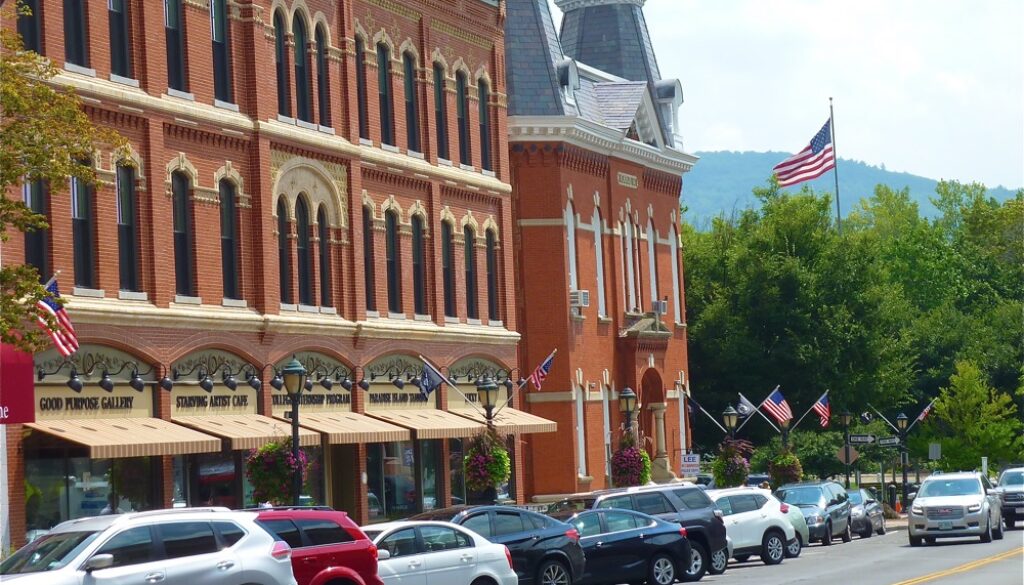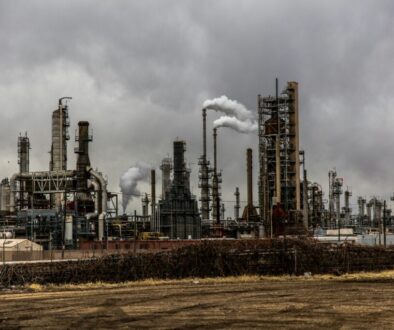Citing “catastrophic disaster”, small Massachusetts town sues over PCB contamination
By Dana Drugmand
Monsanto and General Electric (GE) engaged in a “criminal corporate action” through a secret 1972 deal that allowed the companies to keep profiting from the sale and use of dangerous PCBs despite knowing the toxins were harmful, according to a lawsuit filed by a small Massachusetts town awash in PCB contamination.
The Town of Lee, located in western Massachusetts, accuses the companies of creating a “catastrophic disaster” for residents by polluting the area with polychlorinated biphenyls (PCBs), which have been linked to cancer and other human health problems.
US regulators banned PCBs in the late 1970s, but they have persisted in the environment, spurring claims from communities across the US seeking damages for contamination.
In and around Lee, where PCBs have contaminated the Housatonic River, several families with members suffering from cancer have alleged the PCBs are to blame.
In its lawsuit, filed March 14 in Berkshire County Superior Court, the town said Monsanto had “ample proof” that PCB exposure could cause cancer more than 50 years ago, tracking the disease in hundreds of its own employees.
“We’re taking every route we possibly can to stop this injustice, and it truly is an injustice perpetrated not only on the residents of Lee but all the people in the River Corridor in Berkshire County,” Lee Select Board Chair Bob Jones said.
Monsanto was the sole US producer of PCBs from the 1930s to the 1970s, selling them to GE for use in manufacturing electrical transformers. Monsanto agreed to stop selling the chemicals for most uses in the early 1970s amidst mounting evidence of their toxicity to humans and wildlife. Monsanto made an exception, however, for industrial electric customers such as General Electric, under the condition that these customers sign an indemnification agreement releasing Monsanto from all PCB-related liabilities.
The indemnity agreement between GE and Monsanto, signed in January 1972, acknowledged that PCBs “tend to persist in the environment” and may cause contamination and harm to “humans, marine and wildlife, food, animal feed or the environment.”
The Lee lawsuit says that contract proves the companies knowingly perpetrated damage to the community.
“Monsanto sold PCBs under the terms of this contract and GE continued to profit from the use of PCBs knowing that PCBs were toxic to humans and the environment. Both companies carried this behavior without justification other than making money,” the lawsuit contends.
Since the two companies were aware of the harms associated with PCBs, which are classified as probable human carcinogens and officially banned by the US EPA in 1979, they are “jointly liable” for the toxic products’ localized environmental damage, the lawsuit asserts. Lee is seeking compensatory and punitive damages to be determined by a jury at trial.
Lee is located about 122 miles west of Boston on land that was originally territory of the Mahican Indians. The community of roughly 6,000 people is centrally located in Berkshire County, an area that draws thousands of tourists annually.
The lawsuit comes amid community outrage over a 2020 agreement between GE and representatives from five towns along the Housatonic River corridor that allows GE to deposit up to 2 billion pounds of PCB-laden sediment dredged from the river into a dump site in Lee.
The Lee Board of Health warned in a 2023 decision that the plan “may pose an increased risk to the health of the residents of Lee.” And last year the town filed a lawsuit against Monsanto seeking damages “for the public nuisance to Lee and its residents that will result from the building of a massive PCB dump…”
GE is also facing a separate series of lawsuits in Berkshire County brought by individuals and families suffering from cancers and other diseases they suspect stem from their exposure to PCB contamination at an elementary school and in the surrounding neighborhood where GE operated its electrical transformer manufacturing plant.
Monsanto issued the following comment:
“This lawsuit reflects an attempt by the Town of Lee to impose environmental liability on a manufacturer that did not dispose of PCBs in or near the Town and is not a party to a settlement under which the Town agreed to create a PCB disposal site. Indeed, in its complaint against Monsanto, the Town of Lee acknowledges that ‘GE dumped 1.5 million pounds of PCBs into the river between 1930 [sic] and 1979.’ After accepting a share of a $55 million settlement payment related to the clean-up, the Town is now unhappy with the remediation plan that resulted from its own settlement, and has filed suit against Monsanto, attempting to hold the Company liable for the environmental nuisance and trespass created by the Town’s own decisions.
On the accusation of alleged unlawful practices between Monsanto and GE, the agreement in question was a routine commercial arrangement between two sophisticated companies that were doing business together, and we reject that it was improper in any way. The agreement is only between GE and Monsanto; it did not (and could not) release any party from liability to third parties. The agreement had (and has) no impact on any legal liability adjudged by courts or assigned through administrative agencies like the EPA.
Incidentally, the agreement came at a time when the federal Interdepartmental Task Force on PCBs concluded that PCBs should not be banned entirely as ‘their continued use for transformers and capacitors in the near future is considered necessary because of the significantly increased risk of fire and explosion and the disruption of electrical service which would result from a ban on PCB use.’ Regarding human health risk, this report stated, ‘at the levels in which they are found, PCBs do not appear to present an imminent hazard’ to the human population.”
GE declined to comment.
 EWG
EWG


